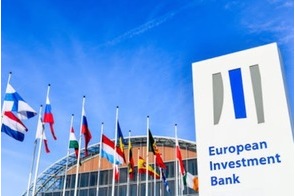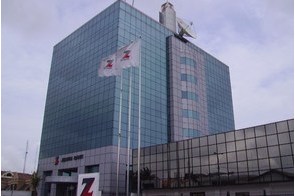Banking and finance in the era of 4.0

Summary
This is the new age of 4.0. Strategy, therefore, must be focused on finding innovative ways to access the ecosystems of technology, talent and data.
Keynote Speech by Herbert Wigwe, Group Managing Director and CEO, Access Bank Plc, titled: “Banking and Finance in The Era of 4.0”, delivered at the Global Sustainable Finance Conference 2019 in Karlsruhe, Germany, on Thursday, July 11th, 2019.
Klaus Schwab, in his ground-breaking book, The Fourth Industrial Revolution, said, “The more we think about how to harness the technology revolution, the more we will examine ourselves and the underlying social models that these technologies embody and enable, and the more we will have an opportunity to shape the revolution in a manner that improves the state of the world.”
Dr. Frank Mentrup, Mayor of Karlsruhe; Charge d'Affaires, Embassy of the Federal Republic of Nigeria in Germany; Heads of Foreign missions; Arshad Rab, CEO of the European Organisation for Sustainable Development (EOSD); delegates from the world's financial markets; distinguished guests; ladies and gentlemen. It is my honour and sincere pleasure to be given this opportunity to speak to you all today.
The Fourth Industrial Revolution is well and truly with us and rapidly gaining ground. The world is developing at such an exponential rate that the average rate of advancement between 1985 and 2015 was higher than the rate between 1955 and 1985.
According to Ray Kurzweil’s “Law of Accelerating Returns,” which he presents in his 1999 book, The Age of Spiritual Machines; by 2030, the 21st century will achieve 1,000 times the progress of the 20th century. Many assets we see and cherish today that may have taken several decades and even centuries to develop will become obsolete in the next 10 years, or less.
Human needs and lifestyles are evolving as a result. In fact, our expectations of everyday conveniences rise exponentially as we delight in new advancements that make our lives easier.
Disruptions are occurring in every industry, especially in banking and finance. The volume of data that new web-connected systems generate every second, and the ability of humans and machines to turn such data into insights, using sophisticated artificial intelligence, is at the core of 4.0. These dynamics are also at the core of the massive transformation underway in the banking and finance industry.
Banks are using data to develop a highly-sophisticated understanding of their customers, leveraging digital banking to compete and offering innovative real-time solutions to deliver ‘best customer experience.’
And yet, this is just the tip of the iceberg. The possibilities of having billions of people connected by mobile devices with unprecedented processing power, storage capacity and providing access to knowledge, are unlimited.
Yet there are threats to consider. And challenges to address if we are to be successful in this exciting era. The much slower changes of the last century offered businesses an option to not adapt or adapt slowly. This is no longer the case. The riskiest action any banking and financial institution could take is to resist the need to innovate.
4.0 will be ruthless in leaving behind those who choose not to innovate in its wake. In the era of 4.0, business leaders who make informed data-driven decisions, drive disruption and develop the new talents needed are more likely to take their businesses to great heights.
New business models are emerging and redefining core industry dynamics. They are demanding a rethink of banking infrastructure, talent, culture, competition and organizational forms. In Africa, and across our business franchise, we leverage technological innovations to contain costs, promote customer retention and improve experience across all engagement channels.
Fintechs present opportunities for forward thinking players. They also represent threats to institutions that delay digital transition. Regulators have a critical part to play. They must strive to promote higher levels of efficiency, transparency and collaboration.
Closer attention is needed at the intersection of financial services, regulation, compliance and digital – an intersection popularly referred to as regtech. In fact, there are many areas of intervention. To name a few: 1) continuous risk monitoring through automated reporting interfaces, 2) utilisation of artificial intelligence (AI) to scan capital market information for signs of misconduct, and 3) equipping mobile phones with chatbots that enable consumers to report financial scams real-time.
All these actions are not a matter of choice; they are a matter of necessity. There is no doubt that banking in 4.0 brings new challenges world-wide.
In Nigeria, protecting numerous intellectual property concerns in a globally networked system of banks is a major challenge. As well, the investment needed in cloud technology platforms, on which most futuristic applications run, comes at a huge cost to institutions. And this is compounded by our poor infrastructure, particularly energy.
Cybersecurity is a major concern across the globe. Information security and protecting customer information against cyber-attacks remain major concerns. Organisations must invest in preventing unauthorised access in all forms.
Access Bank is currently Africa’s largest bank by customer base. And for all the reasons I have spoken about, we are fully immersed in leveraging the opportunities that technology provides, with a strategic focus on creating value for shareholders, providing the best possible customer experience and defending our market share against increasing competition in the 4.0 environment.
Access Bank is committed to innovatively lead in the deployment and use of the best artificial intelligence in banking. Our recent merger with Diamond Bank has strategically positioned the bank in terms of ownership of alternative service delivery channels.
Access ATMs now total over three hundred thousand, and we have over six million mobile banking customers. To drive financial inclusion through retail loans, the bank recently introduced the Quick Bucks app.
We also have Access E-Pay, a payment gateway which helps online sellers receive payments from anywhere in the world. Our revolutionary Tamada, which is an AI chat bot, provides customers with basic transactional and lifestyle needs, including account opening, account-to-account transfers, hotel/flight bookings, weather forecast, and much more.
We recently sponsored the Africa Fintech Foundry. The objective of the initiative is to nurture, fund and accelerate the growth of fintech start-ups in Africa with the aim of providing relevant financial solutions to Africans.
Globally, banks are now recognising the need to communicate long-term sustainability commitments and initiatives. To this end, and together with our commitment to the UN Sustainable Development Goals, Access Bank recently launched a five-year tenured, fixed rate green bond worth N15 billion. It is the first Climate Bonds Initiative-certified corporate green bond in Africa. Access Bank has a corporate strategy and philosophy, which places sustainability at its core.
So, what is a possible roadmap forward for players in the banking and finance industry as they embrace the challenges and opportunities of 4.0? I raise five critical factors.
First, innovation is at the heart of the future of banking. We are already experiencing rapid transformation and disruption across the entire value chain. Innovation must be approached strategically, not just as a business driver, but as a survival route to the future.
Second, the banking sector must continue to accelerate its investments in digital enhancements. We must invest in robust risk management applications that utilise real-time data to enhance credit decision and monitoring.
Third, digital banking is changing the face of banking as we have known it for many decades and players must take advantage of these applications to remain competitive. Robo-advisors and AI-driven chatbots provide a new cost-effective way to engage with customers and these are continuously enhanced to perform even more complex banking transactions. Advances in biometrics and blockchain help to eliminate human error, reduce our cost-to-serve, and optimise efficiencies in peer-to-peer transactions.
The core business processes of banks are being digitised, which means migrating customers to digital channels and using real-time data to rapidly build predictive profiles of customers in order to offer excellent services.
Fourth, to facilitate innovation, collaboration and growth, players must work out a system that enables customers to share data securely with third parties through application programming interfaces.
Finally, banks must urgently acquire specialised human capital at all levels, equipped with the 21st century skillsets necessary to take advantage of all that this digital revolution offers.
For a long time, at conventions like this one, we talked about leadership, innovation, technology, sustainability, corporate responsibility as separate things. The 4th Industrial Revolution has brought all of these together.
Today, businesses and economies compete in a digitally-networked world in which the key to competitive advantage is no longer the sum of all efficiencies, but the sum of all connections.
We live in an on-demand world where 30 billion WhatsApp messages are sent every day, and where 87% of young people in the United States say their smartphones never leave their sides.
This is the new age of 4.0. Strategy, therefore, must be focused on finding innovative ways to access the ecosystems of technology, talent and data.
To conclude again with the insights of Klaus Schwab, the changes are so profound that, from the perspective of human history, there has never been a time of greater promise or potential peril. There are many challenges and much work to be done. But ultimately, the choice is ours. Greater promise? Or potential peril?
I see 4.0 as offering opportunities to develop countries faster than ever before.
Surely, that is a great promise!
Thank you.
Related
-
MDBs publish first common principles for nature-positive finance
According to United Nations Environment Programme Finance Initiative (UNEP-FI), nature-positive finance aims to mobilise ...
-
Certification programme for impact fund managers launches
Gold Standard said its requirements ensure best practice impact investing that builds on IFC safeguards, the UNDP Equity ...
-
Whistleblower protection crucial for anti-graft in banking
Passing the Whistleblower Protection Bill into law would assist in the anti-corruption drive of the current ...









_-_300x350-202501141442143232.jpg)
